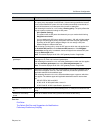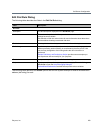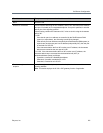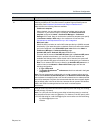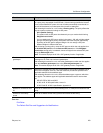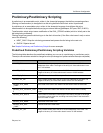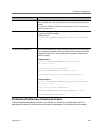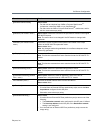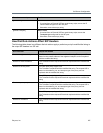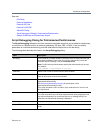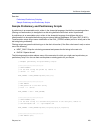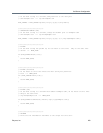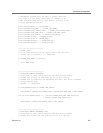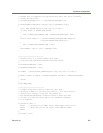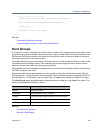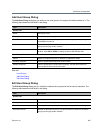
Call Server Configuration
Polycom, Inc. 257
How Dial Rule Actions Affect SIP Headers
The following table shows how different dial rule actions apply a preliminary script’s modified dial string to
the output SIP headers in a SIP call.
getPeerPort() Return value:
• If invoked from an External SIP Peer postliminary script, returns the IP
network Port configured for this SIP peer.
• Otherwise, returns the empty string.
getPeerTransport() Return value:
• If invoked from an External SIP Peer postliminary script, returns the
Transport type configured for this SIP peer.
• Otherwise, returns the empty string.
Dial rule action Output SIP headers
Resolve to registered endpoint The To header is replaced with the modified dial string. The request URI is
based on the contact address of the registered endpoint, and not replaced
with the modified dial string.
Resolve to external address The To header and the request URI are both replaced with the modified dial
string.
Resolve to service prefix For a SIP peer proxy of type OCS:
The To header is replaced with the modified dial string. The request URI is
based on the address, port, and transport type of the proxy, and not
replaced with the modified dial string.
For a SIP peer proxy of type Other:
The To header and the request URI are both replaced with the modified dial
string.
Resolve to peer proxy For a SIP peer proxy of type OCS:
The To header is replaced with the modified dial string. The request URI is
based on the address, port, and transport type of the proxy, and not
replaced with the modified dial string.
For a SIP peer proxy of type Other:
The To header and the request URI are both replaced with the modified dial
string.
Resolve to IP address The To header and the request URI are both replaced with the modified dial
string.
Function name and parameters Details



